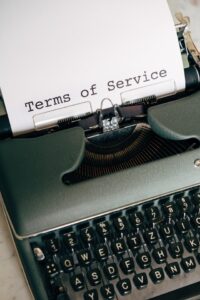Contents
- 1 Introduction
- 2 When you buy business insurance, you receive a set of documents, which describe the protection that you’ve been provided and the exclusions that apply to your policy. These documents include your business insurance certificate and your policy schedule. The documents will also contain any endorsements that may have been added to your policy, such as an excess endorsement.
- 3 A business insurance certificate is an official document that outlines the nature of the cover you’ve chosen and sets out the terms of your policy. You can think of a business insurance certificate as a contract between you and your insurer.
- 4 Your certificate will tell you things like what type of insurance you’re buying (for example, public liability), who it covers (for example, your company) and any limits or exclusions on the cover (what is and isn’t covered).
- 5 The certificate also lists who will pay for the costs associated with any claim made under the policy (such as legal fees), whether or not you need to contact your insurer before any repairs are undertaken, and if so, how much authorisation they’ll give you.
- 6 Business insurance documents contain information about the protection offered by a business insurance policy
- 7 Conclusion
Introduction
When you buy business insurance, you receive a set of documents, which describe the protection that you’ve been provided and the exclusions that apply to your policy. These documents include your business insurance certificate and your policy schedule. The documents will also contain any endorsements that may have been added to your policy, such as an excess endorsement.
A business insurance certificate is an official document that outlines the nature of the cover you’ve chosen and sets out the terms of your policy. You can think of a business insurance certificate as a contract between you and your insurer.
Your certificate will tell you things like what type of insurance you’re buying (for example, public liability), who it covers (for example,) what limits or exclusions on th e cover (what is covered). It also lists who will pay for costs associated with any claim made under the policy (such as legal fees), whether or not you need to contact y ou before any repairs are undertaken, and if so how much authorisation they’ll give y ou
When you buy business insurance, you receive a set of documents, which describe the protection that you’ve been provided and the exclusions that apply to your policy. These documents include your business insurance certificate and your policy schedule. The documents will also contain any endorsements that may have been added to your policy, such as an excess endorsement.
When you buy business insurance, you receive a set of documents that describe the protection that you’ve been provided and the exclusions that apply to your policy. These documents include your business insurance certificate and your policy schedule. The documents will also contain any endorsements that may have been added to your policy, such as an excess endorsement.
Business insurance certificates and policy schedules are important because they provide additional information about how your coverage works. This can be especially helpful if something happened in relation to a claim or claim denial where more explanation is needed (or wanted). If you ever have questions about what’s covered under a specific business insurance policy, we recommend reviewing these documents first so no time is wasted trying to figure out if something falls within the scope of protection provided by your policy coverage(s).
A business insurance certificate is an official document that outlines the nature of the cover you’ve chosen and sets out the terms of your policy. You can think of a business insurance certificate as a contract between you and your insurer.
A business insurance certificate is an official document that outlines the nature of the cover you’ve chosen and sets out the terms of your policy. You can think of a business insurance certificate as a contract between you and your insurer.
The certificate tells you:
- The type of cover you’ve chosen, for example, whether it covers damage to property or yourself, or both.
- Who is covered by your policy (for example, yourself or employees).
Your certificate will tell you things like what type of insurance you’re buying (for example, public liability), who it covers (for example, your company) and any limits or exclusions on the cover (what is and isn’t covered).
The certificate also lists who will pay for the costs associated with any claim made under the policy (such as legal fees), whether or not you need to contact your insurer before any repairs are undertaken, and if so, how much authorisation they’ll give you.
There are a few key things to look out for in your certificate:
- Who pays the costs associated with any claims made under the policy (such as legal fees), whether or not you need to contact your insurer before undertaking any repairs, and if so, how much authorisation they’ll give you.
- What is covered by the policy (and what isn’t). For example, some policies only cover damage caused by fire but don’t include flood damage. Others may only cover one-off events such as burst pipes or theft rather than ongoing damage caused by something like faulty electrics.
- How you can claim on the policy (and what happens if you don’t). You’ll need to follow these steps carefully because failure to do so could invalidate your claim.
Business insurance documents contain information about the protection offered by a business insurance policy
- Business insurance documents contain information about the protection offered by a business insurance policy. These are important because they include information about what your business is covered for, what types of claims you can make, and who to contact if you need help.
- You’ll need to collect all of the relevant documents before making a claim. This means keeping hard copies of any policies you have as well as electronic copies on your computer or phone.
- Information like policies and claims forms will be sent to you after purchasing cover from an insurer, but these may also be available online if you registered for them when buying cover in the first place (this depends on which type of policy was taken out).
- If this doesn’t happen then there’s no legal requirement for insurers to provide customers with any documentation at all – although some do anyway!
Conclusion
We hope this article has helped you understand business insurance documents and how they work. If you have any questions, we’d love to hear from you!



Average Rating